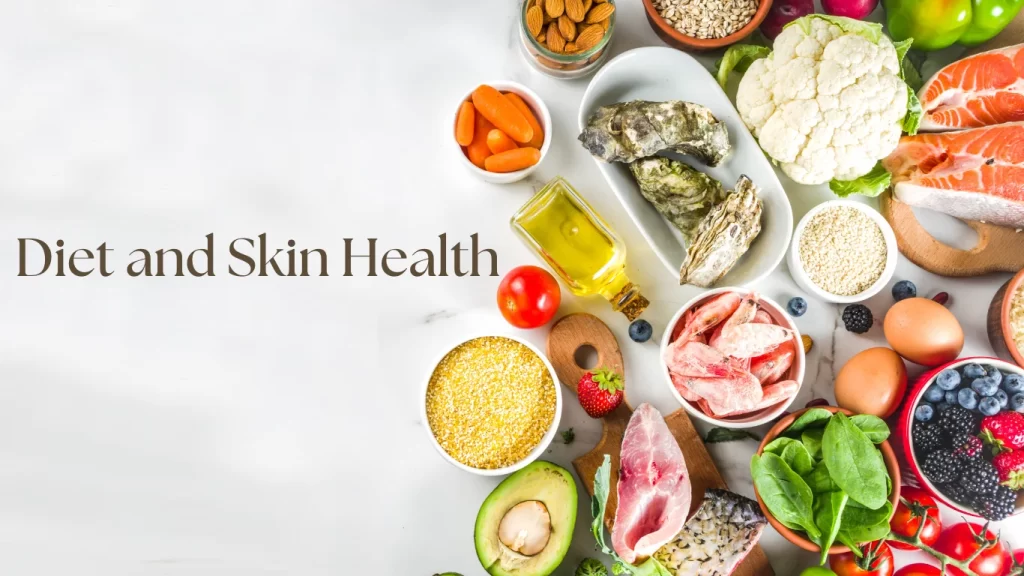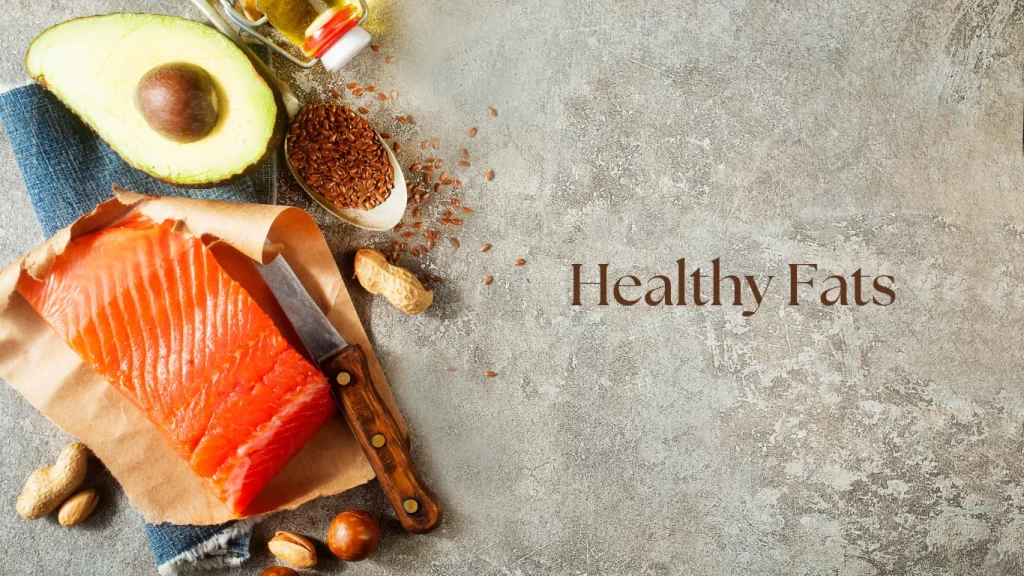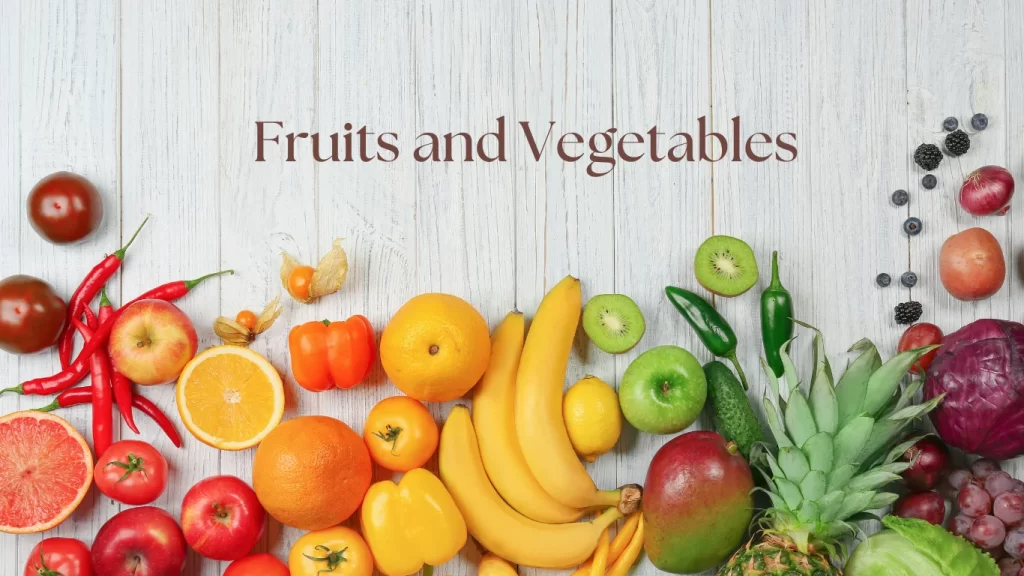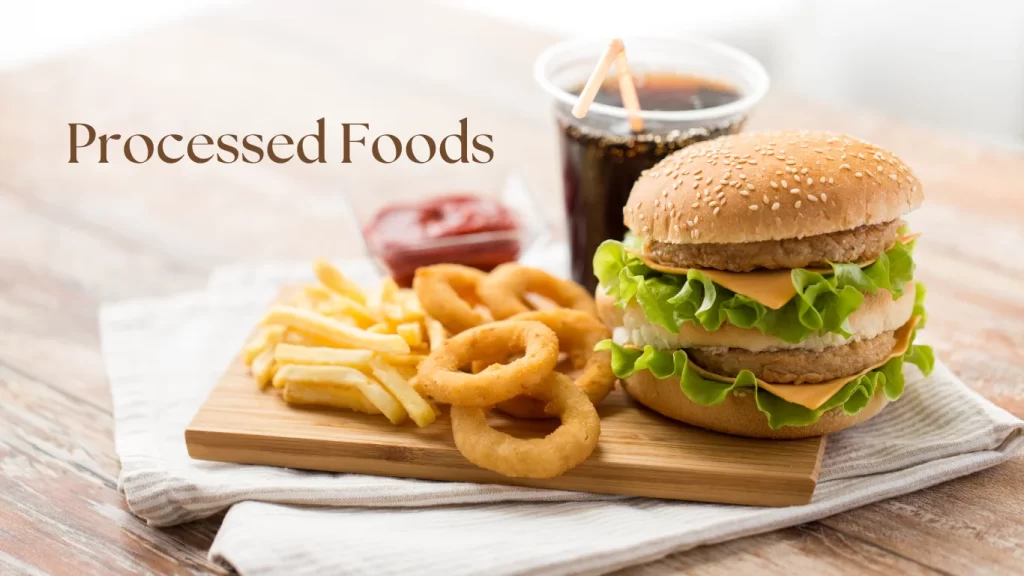Glowing skin is a goal for many, yet the solution often lies beyond the surface. There’s a direct impact of diet on dermatological health, making a diet for healthy skin an essential component of any skincare routine. This approach emphasizes what one applies externally and underlines the critical role of internal nutrition and dietary choices in achieving a clear, glowing complexion. With all the research surrounding nutrition and skin health, individuals are increasingly seeking foods for clear skin and nutrition for radiant skin as a holistic route to dermatological wellness.
This guide discusses the core aspects of a diet for healthy skin, highlighting essential nutrients, the significance of hydration, and actionable dietary strategies to enhance skin health. It will offer an in-depth analysis of the best foods for a glowing complexion and identify those to avoid to maintain skin health. This guide aims to enlighten the influence of diet in achieving and maintaining vibrant, healthy skin.
The Importance of Diet for Skin Health

Historically, the link between the best diet for healthy glowing skin is underestimated, but recent studies have illuminated the profound impact dietary choices can have on dermatological conditions. Individuals often approach dermatologists for dietary advice, linking their skin issues to their nutritional habits. This growing awareness underscores the necessity for clear dietary guidelines to manage or mitigate skin issues effectively.
Nutritional Impact on Skin Conditions
Research has established that certain nutrients play a pivotal role in skin health. Vitamins such as A, D, and E, essential for keratinocyte biology, directly influence conditions like acne through their effects on skin cell proliferation and inflammation. Similarly, dietary fat balance, specifically the omega-6 to omega-3 fatty acid ratio, has been associated with inflammatory skin diseases. Western diets, often high in omega-6 fats and refined carbohydrates, contrast sharply with diets low in glycemic index, which have been associated with lower levels of acne.
Dietary Patterns and Skin Health
Consuming whole foods over processed foods is advocated for its potential to treat and prevent skin disorders. A diet with abundant antioxidants and omega-3 fatty acids and low processed foods and carbohydrates can influence the skin’s health and appearance. Conditions such as rosacea, acne, psoriasis, and atopic dermatitis have all shown responsiveness to dietary modifications, highlighting the importance of nutrition for glowing skin in dermatological health.
Antioxidants and Skin Health
The role of antioxidants in skin health is important. Frequently researched antioxidants, including carotenoids, tocopherols, flavonoids, and vitamins A, C, D, and E, have been identified as agents capable of promoting skin health and beauty. These components help combat the harmful effects of free radicals, thus serving as a preventive strategy against extrinsic skin aging effects.
In conclusion, the relationship between diet and skin health is intricate and significant. A well-balanced diet, high in essential nutrients and antioxidants, is crucial in maintaining skin health, preventing aging, and managing dermatological conditions. As awareness grows, the importance of dietary considerations in dermatological health continues to gain recognition, emphasizing the need for informed nutritional choices in achieving and maintaining healthy skin.
Key Nutrients for Glowing Skin
Vitamins and Minerals
Balancing essential vitamins and minerals is critical for maintaining healthy, radiant skin. Vitamins A, C, D, and E play pivotal roles in skin health, from regulating sebum production to promoting collagen production, vital for skin elasticity and firmness. Additionally, minerals like zinc and selenium are crucial for skin repair and growth, acting as antioxidants to reduce skin inflammation caused by free radicals.
Healthy Fats and Antioxidants

Incorporating healthy fats into one’s diet is paramount for keeping the skin moisturized, firm, and flexible. Fish, avocados, and nuts are essential for building cell walls and maintaining the skin’s barrier function. These fats prevent dry skin and have anti-inflammatory properties that can alleviate conditions like psoriasis or atopic dermatitis.
Antioxidants fight many harmful effects of free radicals, thereby preventing or slowing skin aging and cell damage. Foods high in antioxidants, such as fruits, veggies, berries, and green tea, defend against environmental stressors. Notably, antioxidants like vitamin C also play a role in collagen production and skin repair, offering protection from UV damage and supporting the skin’s natural healing processes.
Proteins
Proteins, the building blocks of skin tissue, are important for the growth and maintenance of healthy skin. The body converts dietary proteins into amino acids, which are then used to produce key proteins like keratin, elastin, and collagen. These proteins give the skin structure, rigidity, and elasticity, contributing to a youthful appearance. A diet of high-quality protein sources, like lean meats, fish, and legumes, supports skin tone, texture, and overall health.
Hydration and Skin Health
Hydration plays a pivotal role in maintaining not only overall health but also the health and appearance of the skin. The skin, the body’s largest organ, functions as a protective barrier, and hydration is key to its performance. Adequate hydration ensures the skin remains plump, soft, and less susceptible to various skin conditions. Conversely, dehydration can exacerbate existing skin issues, making the skin more prone to inflammation and infection. This section explores the importance of staying hydrated and the benefits of incorporating water-rich foods into the diet for optimal better skin health.
Water-Rich Foods
Incorporating foods with high water content into the diet effectively supports hydration from the inside out. Many fruits and vegetables are great sources of hydration, like watermelon, strawberries, and cantaloupe are hydrating.
They also have essential nutrients like vitamins A and C, magnesium, and antioxidants. These nutrients support skin health by promoting fullness, reducing appetite, and protecting against oxidative damage. Other hydrating foods include oranges, which are rich in vitamin C and potassium, and cucumbers, which are known for their low-calorie content and refreshing qualities. Broths and soups, being water-based, offer hydration along with a variety of nutrients, making them beneficial for skin health and weight management. Including these water-rich foods in the diet contributes to overall hydration, supporting skin health and enhancing its appearance.
Foods to Include for Glowing Skin

Fruits and vegetables are high in antioxidants, protecting the skin from radical damage caused by pollution, smoking, and sunshine. A diverse diet with a rainbow of colourful fruits and vegetables, aiming for at least five portions daily, provides vital nutrients like beta-carotene and lutein. These nutrients are crucial for normal skin cell development and maintaining a healthy skin tone, with beta-carotene found in orange-hued fruits and vegetables such as carrots, sweet potatoes, and pumpkins, and lutein present in greens like kale, papaya, and spinach.
Nuts and Seeds
Nuts and seeds offer myriad benefits for the skin through their rich content of vitamins, antioxidants, and minerals. They are known for their anti-inflammatory properties, supporting good metabolism, and promoting cell regeneration, which are beneficial for skin and hair health. Specific examples include almonds, high in vitamin E and an antioxidant that protects the skin from oxidative stress and supports collagen production. Walnuts, rich in omega-3 fatty acids, reduce inflammation and fine lines, while Brazil nuts are an excellent selenium source, protecting the skin from UV damage and supporting overall skin elasticity.
Lean Proteins
The body converts proteins into amino acids, which are then used to produce key structural proteins like keratin, elastin, and collagen. These proteins are essential for the skin’s rigidity, elasticity, and structure.
Healthy Oils
Omega-3 fatty acids, abundant in fatty fish, nuts, seeds, and certain oils, help the skin retain water, leading to a more hydrated and softer appearance. These fats are crucial for building cell walls and maintaining the skin’s barrier function. They also include anti-inflammatory properties that alleviate conditions like psoriasis or atopic dermatitis. Avocados, rich in monounsaturated fats, enhance skin elasticity and hydration. Similarly, olives and olive oil, containing monounsaturated fatty acids and oleic acids, moisturize skin cells, improve skin tone, and offer protection against UV radiation. Extra virgin olive oil, naturally rich in squalene, keeps skin moist and restores lost moisture, while coconut oil is easily absorbable and less calorie-dense compared to other oils.
Foods to Avoid for Healthy Skin
Sugary Foods and Drinks
Foods and beverages high in sugar can impact skin health. Diets rich in glucose or fructose may affect your skin collagen, leading to decreased skin elasticity and the formation of wrinkles. These sugary items include white bread, white pasta, potatoes, sugary drinks, and snacks, known to cause insulin spikes. Such spikes can trigger a chain reaction associated with developing acne by increasing inflammation and androgen levels, contributing to greater oil production in the skin. Furthermore, a high-sugar diet has been definitively linked to acne and may even exacerbate conditions like psoriasis, causing signs of premature aging like fine lines and sagging.

The high sodium in processed foods can highly irritate pores, induce inflammation, and lead to breakouts. These foods are often high on the glycemic index, which can increase androgen hormones, sebum production, and skin cell proliferation, contributing to acne. Processed foods generally have lower nutrient values than whole foods, lacking essential antioxidants and anti-inflammatory compounds necessary for maintaining healthy skin. Common processed items include frozen entrees, canned foods, cured meats, salty snacks, and sodas. While eliminating all processed foods might be overwhelming, focusing on reducing those with the highest salt content and opting for low-sodium versions when necessary can benefit skin health.
Unhealthy Fats
Saturated and trans fats in red meat, cheese, butter, hydrogenated oils, and fried foods can harm skin health. Consuming too much-saturated fat can increase blood cholesterol levels, while trans fats can raise LDL (bad) cholesterol and lower HDL (good) cholesterol. These fats increase the risk of inflammation, heightening acne, psoriasis, and eczema. Trans fats, in particular, found in margarine, vegetable shortening, baked goods, and processed snack foods, are considered the worst for health, contributing to heart disease, diabetes, and stroke, all of which can negatively impact skin health.
Conclusion – Diet For Healthy Skin
Throughout this guide, we’ve explored all there is to know about healthy diet for clear skin, underscoring nutrients and hydration’s pivotal role in achieving a radiant complexion. We’ve also unveiled how dietary choices can significantly influence skin health by highlighting essential foods to embrace and those to avoid. This holistic approach prioritizes external skincare routines and showcases the undeniable impact of internal nutritional choices on dermatological wellness.
The road to radiant skin is paved with more than just good skincare habits. With the insights provided, readers are now equipped with the knowledge to enhance their skin’s health and vitality through mindful dietary practices.
Learn to Meal Prep in just a few easy steps today.





